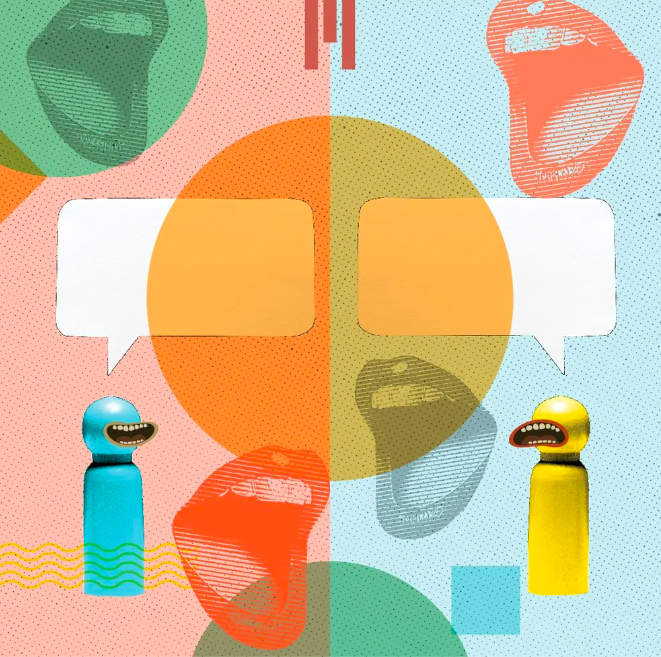New research shows that the little interchanges we have in our day can significantly boost our well-being
Monthly column: “Possible Futures”
Época Negócios Brazil, October 2022
(originally published in Portuguese)
When I’m in São Paulo, I stay at a hotel a couple of kilometres from The School of Life in Vila Madalena and I usually walk there first thing in the morning. On the way, I pass a bank and I have taken to saying good morning to a security guard who is always outside the door. I don’t know who this person is or anything more about him, but it always gives me pleasure to exchange greetings with him, to the extent that, if he’s not there, I’m a bit disappointed.
I was thinking about this when I read a paper that was published last month by researchers from Harvard, Virginia University and the Esade Business School in Barcelona. They looked at the lives of 50,000 people in eight countries and found that the more of these little interchanges we have in life the happier we are.
Sociologists call these connections “weak links” – relationships with people who we don’t really know that well, maybe not even their name, but see on and off and say hello to. But I think that’s a misnomer, as, as the research shows, they actually strengthen our sense of connection and belonging and, importantly, take us away from our inner worlds and the obsessions and anxieties that can live there.
In Britain, where I live for most of the year, we are a little sceptical of speaking to strangers in this way – although we are much less conservative than people think we are – and one of the biggest things I noticed when I first started living and working in Brazil was how often people chatted with people they didn’t know at bus stops and in supermarket queues. In Britain, there is a sort of cultural sense that people should be left alone, that somehow starting a conversation with someone you don’t know is an intrusion. But, as the research shows, these little interactions are good for our well-being. So how can we get over our reluctance to engage in them?
One of the most popular classes at The School of Life – and one that is always a pleasure to teach – looks at this topic head-on: how we can overcome our shyness with others. There are plenty of reasons why we don’t engage with strangers. Here in the UK, we have a sense that, once we’re talking with them, it’s somehow rude to end the conversation without trying to make the connection deeper: exchanging numbers, for example, or making an arrangement to see each other again. It’s as if we don’t have a tool to end the conversation politely. (That’s why bus stops and supermarket queues are so good for this – the situation brings things to an end without our having to engineer it ourselves.)
But I also think we imagine that we don’t have anything in common with strangers, unless we can immediately see some point of connection. What on earth could I talk about with a security guard or the person who cleans the street outside my house, unless I too work in security or street cleaning? This attitude is obviously a defence: against being embarrassed or rejected. But it is also denying us those very points of contact that those researchers have shown are so good for our well-being.
Instead – and this is how we approach the topic at The School of Life – it’s much more powerful to acknowledge that there are more similarities between us and a stranger than there are differences.
We are probably hard wired to notice difference, especially when that difference makes us stand out: I am a woman in a group of men; I am black in a world that is mostly white; I am young and everyone around me is older; and so on and so on. And that can make us self-conscious and insecure, and feel separate from those around us – a separation that can feel hard to bridge.
However – and this is what our class prompts us to explore – we can acknowledge that things like gender, skin colour, age and so on are just parts of what we might call our “local” identity, while there also exists a much more “universal” identity that connects all human beings. All of us, for example, have had problems with love. All of us have felt pride and joy when something at work goes well. All of us understand what it means to feel lonely. All of us have had challenges when it comes to family or money or ambition. These – and there are many more examples – are essential parts of being human and we share them not only with security guards and street cleaners but also with the people we see working in shops, homeless people sitting on our streets, strangers at networking events and, should we find ourselves travelling there, nomadic tribespeople in rural Ethiopia.
The Roman playwright Terence said, “I am human, and I think nothing human is alien to me” and I think that is a good start if we want to increase the number of small, casual encounters we have in our daily life. Those people we walk past on our way to work, see behind the counters of the shops we go into, hand our tickets to at the cinema, are humans just like us and we have a huge amount in common with them. They may not want to talk to us, of course, and that’s their right. But, if we really want to build our happiness and sense of well-being, we should at least give them the chance.






